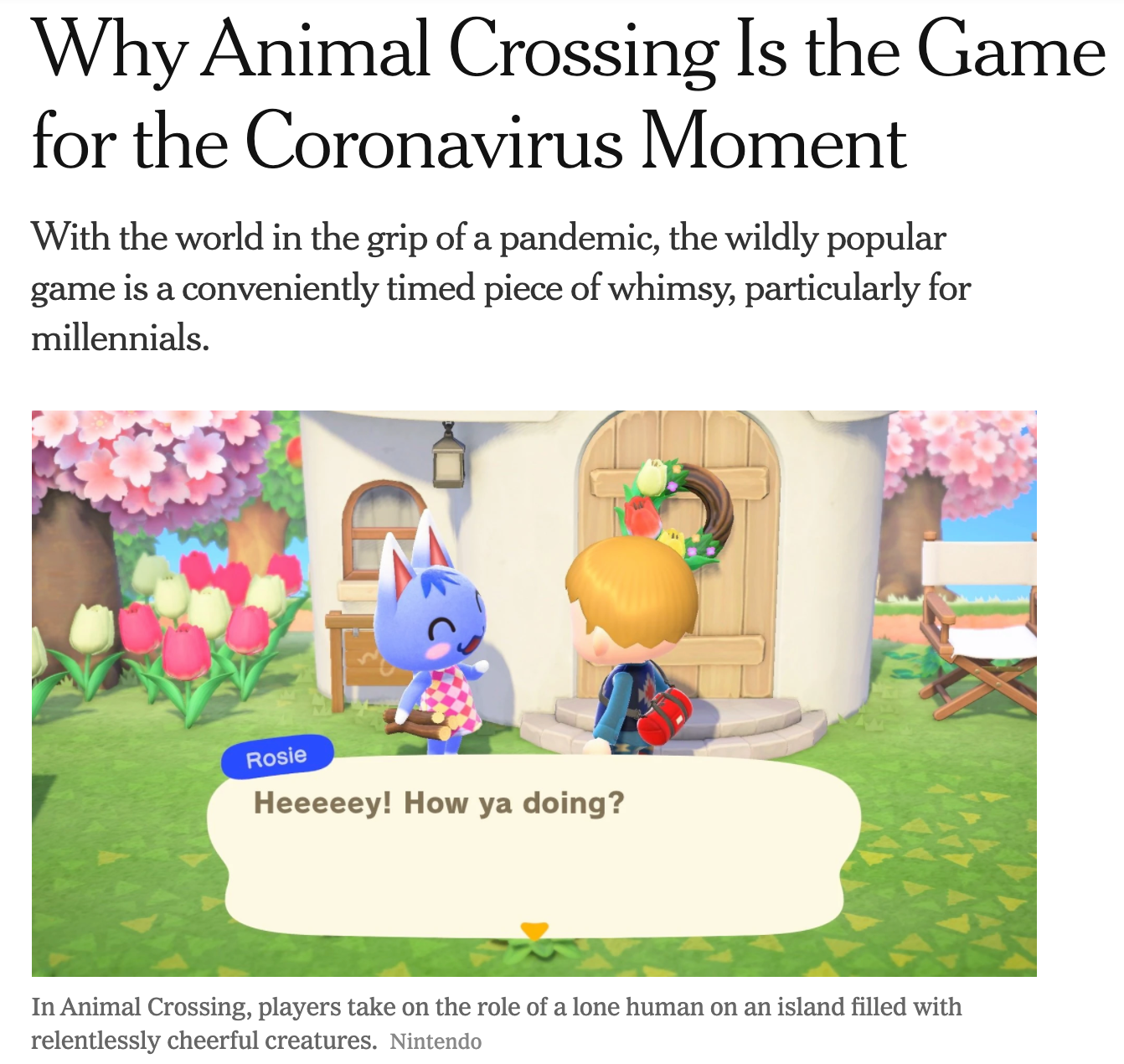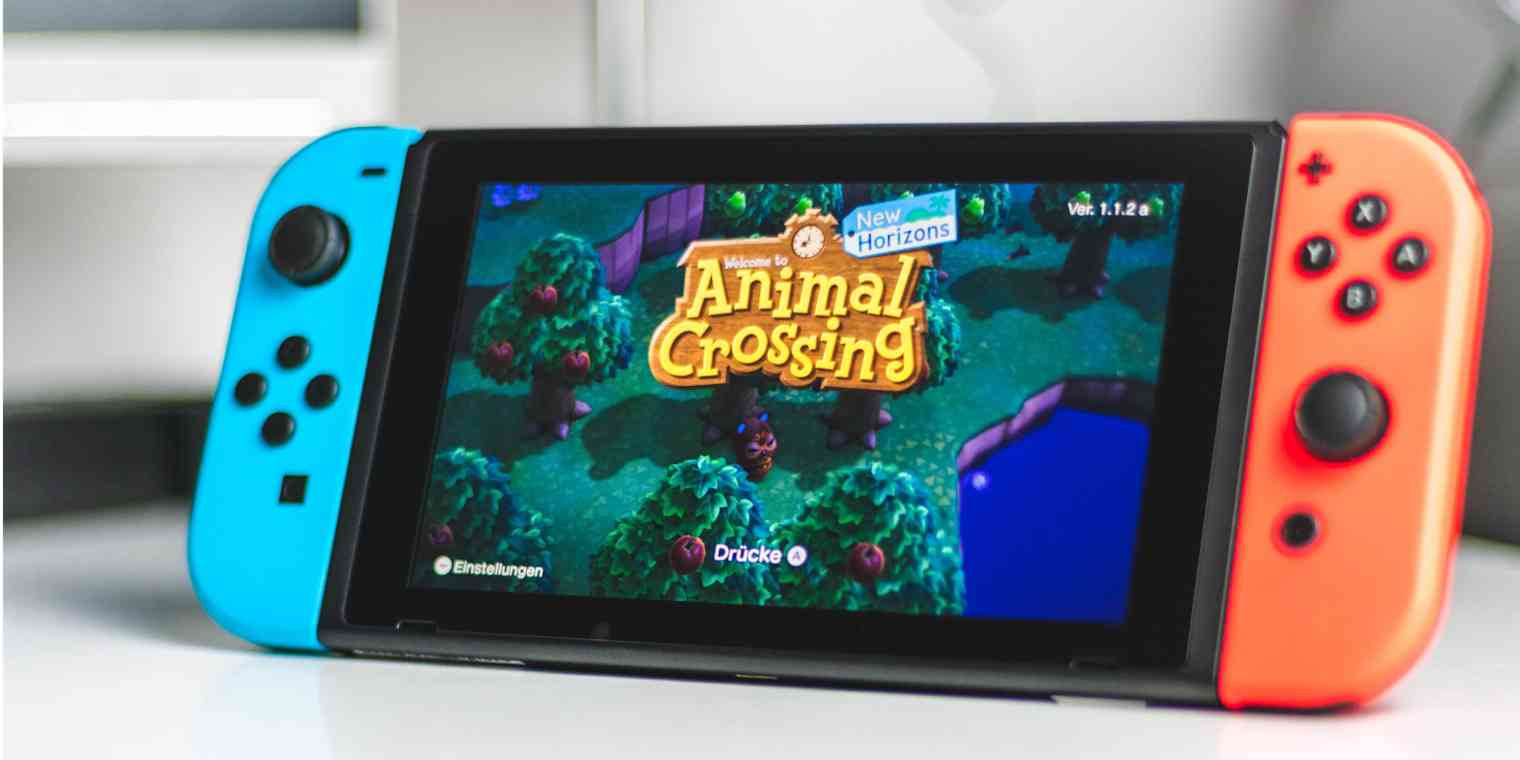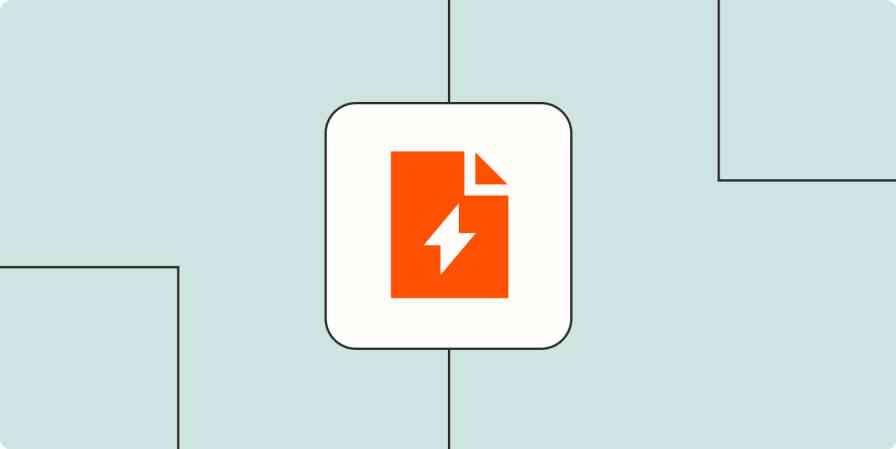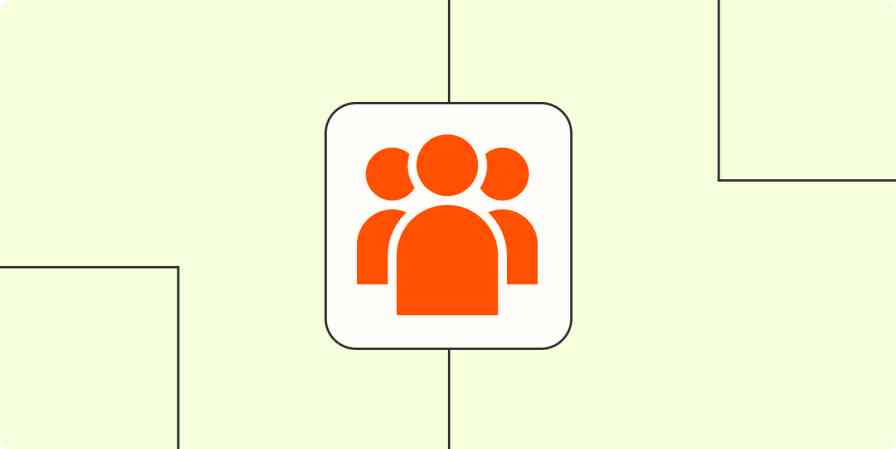There's no secret recipe for overnight success—but there are ways to give yourself a fair shot. And while you're likely not trying to create the next viral video game, I think any small business can learn a lot from everyone's favorite quarantine game: Animal Crossing: New Horizons.
Animal Crossing: New Horizons took the world by storm. It sold over 13 million copies in the first six weeks, and to this date, it continues to bring people in. Here we'll look at a few reasons the game is so popular—and how its success can become a recipe for yours.
If you've been living under a rock, Animal Crossing: New Horizons is a video game that allows you to design your own island town, populated with up to 10 adorable anthropomorphic villagers with strong personalities, and slowly pay a mortgage you didn't know you were signing up for to a friendly tanuki. You also get to fish, catch bugs, and plant flowers, all in real (and happy) time.
Timing matters
Animal Crossing: New Horizons came out on March 20, 2020, at the peak of the COVID-19 pandemic around the world. It was a tough time for a lot of businesses, big and small—but not for Nintendo.
The game is simple. Since it was designed for a young audience (three years old and up!), it doesn't require you to perform any mental gymnastics unless it's related to creating rivers or turnip exchange. The timing of releasing a simple, nonlinear, and plain ol' cute game while the world around crumbles seems almost like a setup, especially given the initial delay in release. After all, what better way to de-stress than designing your own island and hopping around catching butterflies?

Whether or not you believe it was just lucky timing, there's a lesson to learn here: timing matters. Don't wait for another pandemic, and please don't try to capitalize on other people's bad news, but look at what's happening in your community and the world at large, and see how you might tie your product or service in at the right time.
For example: Can you coordinate a campaign with Small Business Saturday? Does your city hold any local events that you can sponsor? Think about your industry too. There's a holiday for everything, so take advantage of Hot Sauce Day or International Dog Biscuit Appreciation Day with the right hashtag and you can reach a wider market.
Listen to your customers—and act quickly
Since the release of Animal Crossing: New Horizons, there were some issues—a few that were pretty major. There was a duplication glitch that allowed users to clone some items in the game, a glitch that allowed users to place items on the fourth level of the cliffs (which shouldn't be possible and could potentially crash the game), and a walking-on-water glitch.
Nintendo resolves these issues quickly and regularly—and they put out patch notes so players can review them. They also prioritize the fixes well: they quickly resolve issues that could potentially corrupt users' saved files or make the gameplay unenjoyable. But they wait on issues that could be potentially engaging for users, like the duplication glitch.
The takeaway: listen to your users and prioritize based on their response.
If you have a SaaS product, you'll likely get tons of customer support emails requesting tweaks. That's natural. Track that feedback, and prioritize the issues. You'll never be able to fix everything at once, and things that bug one customer might be a plus for another, so it's all about putting your efforts toward the right issues.
The same goes for other products and services. If you run an eCommerce business, you'll get reviews with feedback on your products. Don't write them off, but before you put resources toward addressing negative feedback, make sure it's a pervasive issue and not just one person's opinion. Making product decisions based on a sample size of one isn't good for your business or your customers.
You can automatically track feedback and respond more quickly to customer emails with automation. Here's how one small business automated their customer care with Zapier. Take a look and then read more about how Zapier works.
Create smart restrictions
Animal Crossing: New Horizons is not without its controversies. The one that took the internet by the storm is the fact that you can only create one island per Switch.
Once you've designed your island, spending weeks moving buildings, decorating, and introducing new characters, you're going to want to do it again. You know, see what else you can come up with. That means you have two choices: delete what you have and start fresh, or buy another console.
We don't recommend this kind of extreme restriction, but it points to something worth remembering: you shouldn't be giving your entire product or service away for free. You're running a business, and in order to continue helping your customers, you need revenue. So you can give people something for free, but make sure you're charging in the right spots.
You might start simply by creating an add-on to your existing product or service. For example, if you own a gift shop (online or brick-and-mortar), you might do free shipping but charge a fee for gift wrapping. If you run an app, maybe you offer tiered support that people on a higher subscription level get. There are a lot of ways to do this that work.
Your product or service probably won't have Animal Crossing: New Horizons levels of success (sorry to break it to you). But whenever something takes the world by storm in such a pervasive way, it's always important to give it a second look and ask yourself—which of these strategies might work for my business?
This was a guest post from Anna Wybieralska, Content Creator at Elastic Email{: rel="follow" }, an email marketing platform with over 10 years of experience. They create all the email marketing and delivery tools you need to communicate with your customers. Want to see your work on the Zapier blog? Check out our guidelines and get in touch.
Hero image by Sara Kurfeß on Unsplash.





